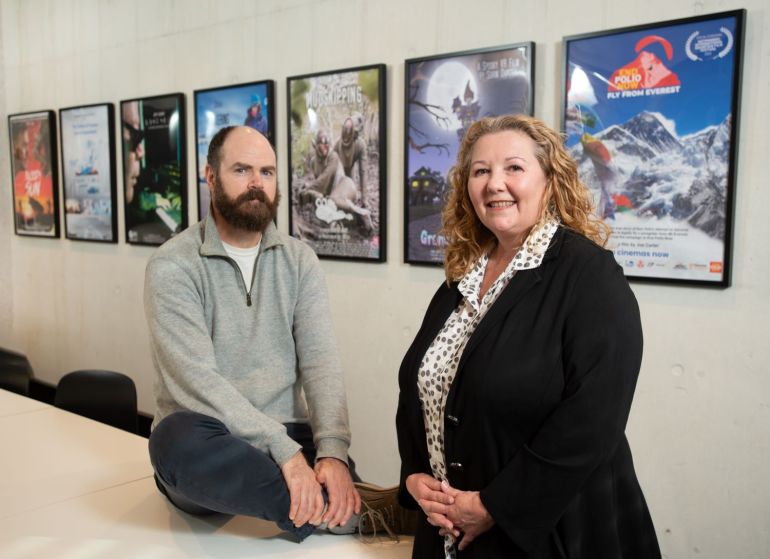A new study from the Queensland University of Technology (QUT) has recommended the City of Gold Coast, and the newly established Gold Coast Film Commission, support the relocation of screen professionals from other states to maintain its momentum as a creative hub.
Commissioned by the Gold Coast Film Commission, ‘A Re-Evaluation of Screen Production on the Gold Coast After COVID-19’ examines the size and activity of the film and television production industry on the Gold Coast since the outbreak of COVID-19 in March 2020, and the subsequent surge in production activity, focusing specifically on the period between June 2020 and mid-2023.
As part of the report, Mark Ryan and Sue Cake from the QUT’s School of Creative Arts (Film, Screen, and Animation) worked with Andrew Couzens (CQUniversity) and Peter Innes (USC) to determine the capacity and constraints of film and television sound stages and production facilities on the Gold Coast since COVID and the challenges for the screen industry looking forward.
The research indicates 91 narrative feature films, feature-length documentaries, television, and online series were either wholly filmed or located at least part of their production on the Gold Coast between 2017-18 and 2022-23, of which 46 projects were made by either local Gold Coast based producers or producers based in South East Queensland.
It goes on to highlight four key obstacles to the continued growth of the city screen sector, namely limited scale of local original content production; weak networks and a need for further professional development opportunities; skills shortages across most crew roles; and lack of capacity and availability of sound stages, production facilities, and other support infrastructure.
While noting the City of Gold Coast had already adopted “proactive” policies and was “investing heavily” in the screen industry, the report suggests the development of a relocation incentive to “attract key high-value screen professionals from other states by facilitating and supporting their relocation to the city”.

Other key recommendations include a rebrand of the Screen Access Program, which encourages Gold Coast individuals and businesses to grow their screen expertise and resources; developing mid-career director and producer attachments on domestic and international projects filmed on the Gold Coast; partnering with education providers to establish short courses in producing and film and television; modeling their production expenditure classification on that of Screen
Australia; and investigating the feasibility of a technical production hub near Village Roadshow Studios or Helensvale, where Pinnacle Film Studios is located.
The release of the report comes nearly 12 months after the City of Gold Coast announced the formation of a Gold Coast Film Commission, becoming the Australian local government body that provides incentives for the screen industry to have involvement with the Association of Film Commissioners International.
It has also increased screen funding by more than 300 per cent in the past year to support a greater number of international, national, and local productions, and is moving forward with the Yatala screen studio development project, as well as an education facility at the Home of the Arts (HOTA).
The city screen sector received a further boost in June, with the Queensland Government announcing a new $5 million Capital Grants Program to help Gold Coast screen businesses expand their operations. So far this year, the city has secured the productions of Sean Byrne’s Dangerous Animals, Frank E. Flowers’ The Bluff, and Peter Farrelly’s Balls Up.
Gold Coast Mayor Tom Tate said the QUT-led research reinforced the council’s vision for the city and the commitment of the Gold Coast Film Commission.
“The City of Gold Coast is the only council in Australia that provides financial support for film and television productions through an incentive program,” he said.
“With this has come significantly increased demand for screen and production facilities which is why the City has initiated the Yatala screen industry project mid-way between Brisbane and the Coast.
“The site would become Australia’s most advanced studio and production precinct, with the ability to support short-term accommodation and allied industries close to key infrastructure and services.
“On top of this, the City is helping future-proof the industry through the development of an education facility at the Home of the Arts (HOTA) to address a workforce shortage, particularly of crew talent.”
Read the full report here.


